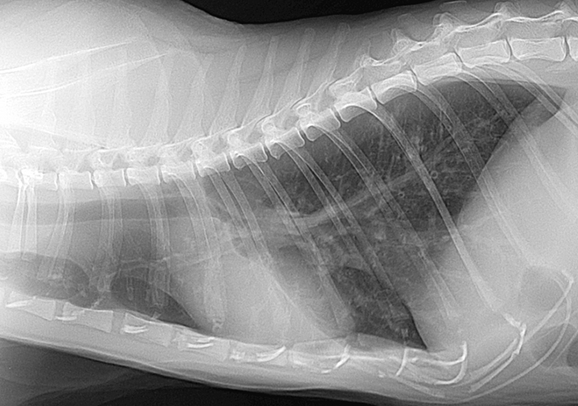Statistics indicate that cats between the ages of 2 and 8 are more frequently diagnosed with bronchitis, which is an inflammation of the bronchial mucosa. This condition is considered perilous and necessitates immediate treatment.
Bronchitis in cats can be classified as purulent, hemorrhagic (accompanied by bleeding in the bronchi), fibrinous (characterized by the formation of clots), and mixed. The disease can manifest in both acute and chronic forms.
Most frequently, our feline companions fall ill after experiencing a sudden drop in body temperature. This can happen if the cat is not adequately dried after bathing or if there is a draft in the room.
Contributing factors to the development of the disease encompass poor nutrition, improper living conditions, and excess weight. Allergies can also trigger the disease, as can inhaling dust and chemical elements.
Stray cats are particularly susceptible to bronchitis, which develops due to a weakened immune system resulting from infection with helminths and other parasites.
**Symptoms of Bronchitis in Cats**
Symptoms vary between acute and chronic forms. Chronic bronchitis can remain inconspicuous for an extended period, only occasionally manifesting as dry coughing after drinking water. Frequently, pet owners attribute the cough to the cat merely choking on water. Over time, there may be a slight increase in body temperature, more frequent coughing spells, and chronic bronchitis can sometimes lead to asthma.
In acute cases, the appetite diminishes, and the cat becomes lethargic. Body temperature rises slightly, and there is a dry cough (sometimes with wheezing). As the disease progresses, mucus becomes apparent, transforming the cough into a productive one. Clear, watery nasal discharge is also observed. Coughing may induce vomiting. Allergies or an infection that led to bronchitis can complicate the situation.

**Diagnosis and Treatment of Bronchitis in Cats**
At the first signs of illness, it is imperative to take your cat to the veterinarian. Only a specialist can provide an accurate diagnosis based on a complete blood count, chest X-rays, bronchial auscultation, and percussion.
Comprehensive treatment is prescribed by the veterinarian following a thorough examination of the animal. First and foremost, the sick cat requires attention, care, and a comfortable environment. The cat should be provided with high-quality nutrition and a comfortable, tranquil resting place with a constant supply of fresh, warm air. During the treatment period, refrain from exhausting the cat with games, excessive brushing, or other strenuous activities.
Medications may encompass expectorants to dissolve and expel mucus. In cases of acute bronchitis, antibiotic injections, anti-inflammatory drugs, and immunostimulants may be prescribed.
**Prevention**
Preventive measures aim to bolster the cat's resistance to disease. To achieve this, offer your pet a balanced diet, including a vitamin and mineral complex.
It is also crucial to avoid situations that can lead to the development of the disease. Prevent overcooling by eliminating drafts in the house, refrain from letting your cat outside in cold weather, avoid placing the cat by the window in winter, and minimize contact with allergens to help prevent bronchitis.